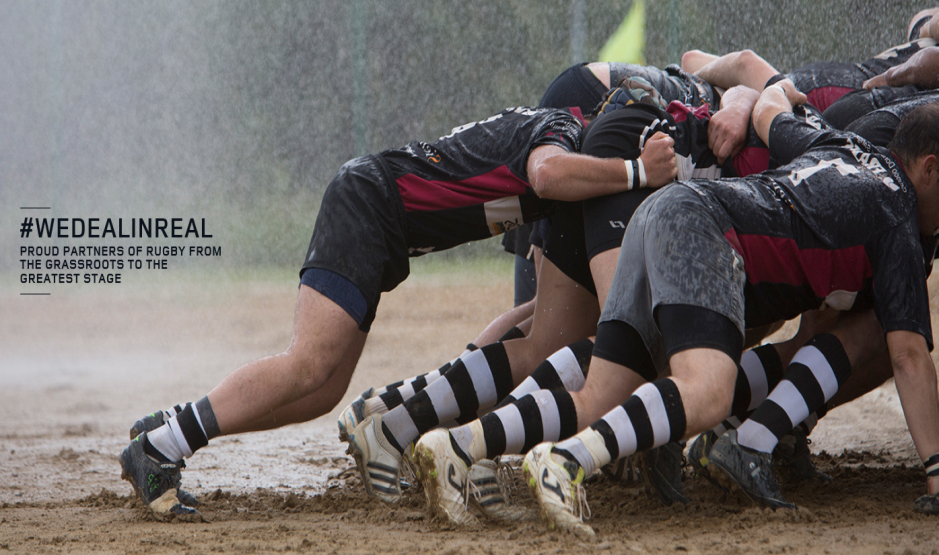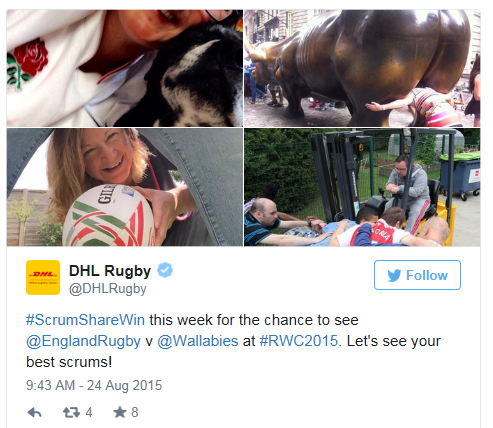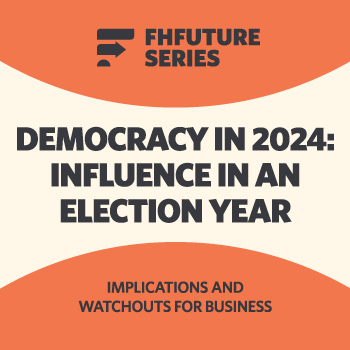Rugby World Cup 2015 - Time to Talk Tactics
The Rugby World Cup (RWC) begins today and it’s only natural that my thoughts have begun to stray to the action to come and who will end up on top. Yet it’s not just the tournament that has piqued my interest but the tactics that brands are employing to sponsor this global event and what they hope to gain.
According to the organiser’s, World Rugby, this year’s tournament is going to break records with 500,000 overseas fans expected to visit over the course of the six weeks – and social and digital engagement is likely to be at a level never before seen in the sport.
At this RWC, it’s fascinating to see how many brands are tapping into the human interest side of sport to engage with consumers, whether it is through grass roots initiatives, simple experiential campaigns or interactive social challenges.
Land Rover, for example, has taken a three-pronged approach. A grass roots programme, #wedealinreal, spanning 11 small clubs from around the world and two experiential campaigns – ‘Mascots’, giving 96 children from around the world the chance to be mascots at selected games, and the Rugby World Cup Trophy Tour.

For a brand that is so closely linked with the sport, a campaign like this builds on foundations that were laid decades ago and serves to strengthen the emotional connection between Land Rover and its fans. It builds on the idea that this is more than just a brand – it cares for people, whether it is supporting grass roots rugby or providing children with the opportunity of a life-time.
With the rise of e-commerce, companies like DHL have had to evolve from being mainly B2B, to being more consumer-conscious and as such their sponsorship goals for such an event are very different. If they get their strategy right, then a global event like the RWC represents an unparalleled opportunity to change consumers’ perceptions of the brand, and ‘sex it up’.
It is not the first time a brand has attempted this; McDonald’s sponsorship of the Football Association had a similar goal. Through the targeting of grassroots football it hoped to encourage an attitude change towards its brand; this summer the brand’s campaign #celebratebetter, offered young players the chance to escort players on to the pitch at the Home Nation’s Euro 2016 qualifiers. Whether its providing kits to clubs or helping them get accredited with the appropriate football association, McDonald’s is a great example of how a brand has built a good reputation for CSR in local communities.

DHL is looking to do this by emotionalising what is already a very functional brand through a combination of digital and experiential activities. This is being achieved through campaigns such as the match ball promotion – each game, one child from a competing nation will get to deliver the match ball – and its online campaign, #scrumsharewin, which calls for people to scrum against inanimate objects and send in their photos for a chance to win match tickets.
Only time will tell if DHL has succeeded in creating an emotional connection between its brand and consumers, but before the tournament has even kicked off, it’s safe to say that they have succeeded in getting thousands of consumers to engage with the brand, and that is the first step.
Jonathan Kehoe, Intern, Brand Marketing
Find Out More
-
Democracy in 2024: Influence in an election year
May 2, 2024
-
Platinum CMS Award
March 13, 2024


